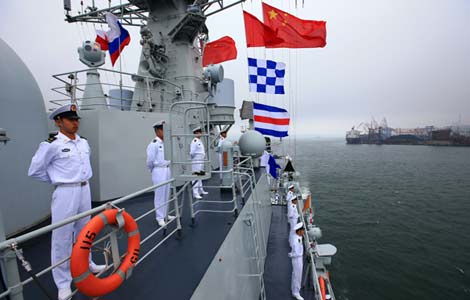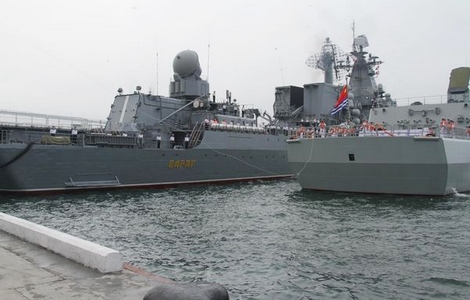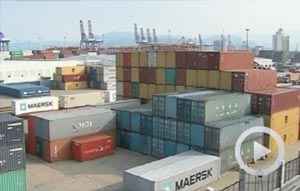China, Pakistan ink transport pact
Updated: 2013-07-06 02:03
By LI XIAOKUN and ZHANG YUNBI (China Daily)
|
|||||||||
In talks with Sharif on Thursday, President Xi Jinping referred to his guest as "an old friend and a good brother". He said strengthening strategic cooperation with Islamabad is a priority for Beijing's foreign policy.
Wen Fude, vice-president of the Chinese Association for South Asian Studies, said the corridor will provide another strategic choice for China's transport sector.
It will also stimulate infrastructure construction in Pakistan, Wen said, adding that increased bilateral trade brought by the corridor will help Islamabad to cut its huge trade deficit with Beijing.
"Beijing is helping Pakistan to produce blood by itself, instead of donating blood through assistance," Wen said.
Another agreement signed on Friday covers the laying of a fiber optic cable from the Chinese border into Pakistan that will boost Pakistan's access to international communications networks.
Sharif, previously elected prime minister in 1990 and 1997, has been a frequent visitor to China and believes China is Pakistan's "most reliable friend".
He is making the first stop on his first foreign trip since being elected in May. Sharif met Li during Li's visit to Pakistan in late May, before Sharif was formally sworn in.
At the start of his meeting with Li on Friday, Sharif said the warm welcome he received reminded him of the saying "Our friendship is higher than the Himalayas and deeper than the deepest sea in the world, and sweeter than honey."
Li and Sharif agreed to upgrade the China-Pakistan free trade area and deepen anti-terror cooperation.
Sharif promised that Pakistan will do its best to protect Chinese citizens in the country. Two Chinese were killed in Pakistan-administered Kashmir by Taliban terrorists on June 23.
The prime minister enjoyed a subway trip in Beijing on Thursday afternoon and he planned to take a bullet train to Shanghai on Friday.
He told China Daily that he is "very much looking forward to" introducing Chinese trains to his country.
The main objective of the ride is to explore the possibility of having similar high-speed trains in Pakistan, he said.
"It is going to be a tremendous experience," he said.
He is also scheduled to meet the leaders of many major Chinese enterprises, especially in the infrastructure construction and energy sectors.
Hu Shisheng, a researcher on South Asian studies at the China Institutes of Contemporary International Relations, said infrastructure construction and energy scarcity are the two biggest problems for Pakistan's economy.
"China and Pakistan have enjoyed very strong political and military ties. Now they are building up in the economic field," Hu said, adding that economic issues are the theme of Sharif's political agenda.
AP and Pakistan Press International contributed to this story.

 Djokovic, Murray to vie for Wimbledon title
Djokovic, Murray to vie for Wimbledon title
 China-Russia navy drill furthers ties
China-Russia navy drill furthers ties
 Famed monkey takes a new direction in New York
Famed monkey takes a new direction in New York
 China, Pakistan ink transport pact
China, Pakistan ink transport pact
 Passenger car sector outlook brightens
Passenger car sector outlook brightens
 Multinationals face increased scrutiny
Multinationals face increased scrutiny
 Kobe Bryant reportedly has highest net worth in NBA
Kobe Bryant reportedly has highest net worth in NBA
 Chinese fleet arrives in Vladivostok for drills
Chinese fleet arrives in Vladivostok for drills
Most Viewed
Editor's Picks

|

|

|

|

|

|
Today's Top News
China reiterates prudent monetary policy
Companies plan massive investment in Xinjiang
Tetra Pak probed in China
Venezuela offers asylum to Snowden
China, Pakistan ink transport pact
24 dead in Egypt protests
High hopes for China-US talks
Li: 'India is an important neighbor'
US Weekly

|

|







